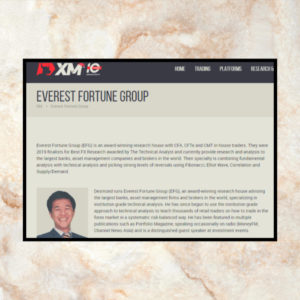- What is Trading
- Forex Market
- Equity Market
- Commodities Market
- Derivatives Market
What is Trading?

- It’s been there ever since man started painting symbols on cave walls and realized that in exchange for an arrowhead he could get paint
- Since goods were first exchanged between people thousands of years ago, trading has been a great way of making profits
- People started trading everything – real estate, cattle, sugar, cotton, gold, oil, food, clothes, weapons, technology, even art
- Today even trading money for money is possible. Moreover, anyone can do it online, at any time and from anywhere
- The financial market is the place where financial assets such as stocks, bonds, currencies and commodities are traded
Why People Trade

- Some people are motivated to trade because they expect to gain a profit on their investment – we call them speculators
- Speculators try to anticipate price movements and trade to make a profit by buying low and selling high
- Some other people are motivated to trade in order to manage their risk – we call them hedgers
- Hedgers trade in order to protect an asset they already have like the farmer who sells his crop before the harvest season
- Besides trading to save, manage risk, and speculate some people trade simply because they find it challenging
Financial Markets

- Financial trading all over the world takes place, either through a regulated centralized exchange or over the counter
- “Exchange-traded” markets operate via a centralized exchange such as the NYSE, LSE, TSE, and many more around the world
- OTC markets are decentralized markets made up of networks of different dealers who compete to link buyers to sellers

- The foreign exchange or forex market – where you can buy and sell currencies like the euro and the dollar
- The equity or stock market– where you can buy and sell shares of companies like Apple, Facebook and Ali baba
- The commodities market – where you can buy and sell commodities like gold, oil, grains, sugar etc
- The bond or fixed income market – where you can lend money to governments or corporations
- The derivatives market – where you can trade financial contracts that obtain their value from an underlying asset
The Forex Market

- The foreign exchange or forex market, is the financial market where currencies are traded or exchanged for one another
- Biggest market in the world with an average volume exceeding 5 trillion dollars per day operating 24/5 from Monday to Friday
- The foreign exchange market is an OTC market used by Individuals, financial institutions, businesses, governments…
- Foreign exchange transactions occur because of international trade, tourism, borrowing and lending and speculation
- Today most currencies are freely floating and their price is determined based on the demand and supply of each currency
Equity Markets

- The equity market or share market is simply the place where shares or stocks are traded
- Shares are financial assets that provide evidence of ownership in a company and hence a share in its profits
- Shares of publicly listed companies like Apple and IBM are traded in a stock exchange like the New York Stock Exchange
- If the company is profitable at the moment and expected to make more profits in the future the price of the share will rise
- If the company is not profitable at the moment and is not expected to make future profits, its share price will drop
Commodities Market

- The commodities market is the place where raw materials instead of manufactured goods are traded
- Agricultural commodities – grains, food and fiber like corn, soybeans and cotton but also livestock and meat like cattle
- Energy commodities – crude oil, brent oil, ethanol, natural gas and propane
- Metal commodities – industrial metals like copper, lead and zinc and of course precious metals like gold and silver
Fixed Income Markets

- The bond market or fixed income market is the place where investors and traders trade debt and securities
- It is the market where borrowers that have shortage of cash, meet with investors that have surplus of cash
- The main issuers of bonds are governments, semi government institutions like municipalities and corporations like IBM
- When you buy a bond, you are lending the issuer money and they promise to pay you back in full, with interest in the future
Derivative Markets

- Is an instrument whose value depends on – is derived from – the value of some other instrument, called the underlying asset
- For example, oil derivatives derive their value from the value of oil in the oil market
- Derivatives are divided into two categories based on the asset they derive their value from
- Commodity derivatives are based on commodities – energy contracts derive their value from commodities like oil and gas
- Financial derivatives are based on financial instruments – stock and index contracts derive their value from the stock or index
Types of Derivatives

- Futures – a standardized contract to buy or sell an asset at a pre-determined price, at a specified date in the future
- Options – a contract that gives the holder the right to buy (call option) or sell (put option) a security at a specified price
- Contract for Difference (CFD) – a derivative contract used as a speculative tool against changes in the value of an underlying asset
- Financial derivatives have many benefits such as margin trading, going long and short, and some being tax exempted
- Margin trading however as in all cases can increase both the profit potential but also the risk so must be used wisely








